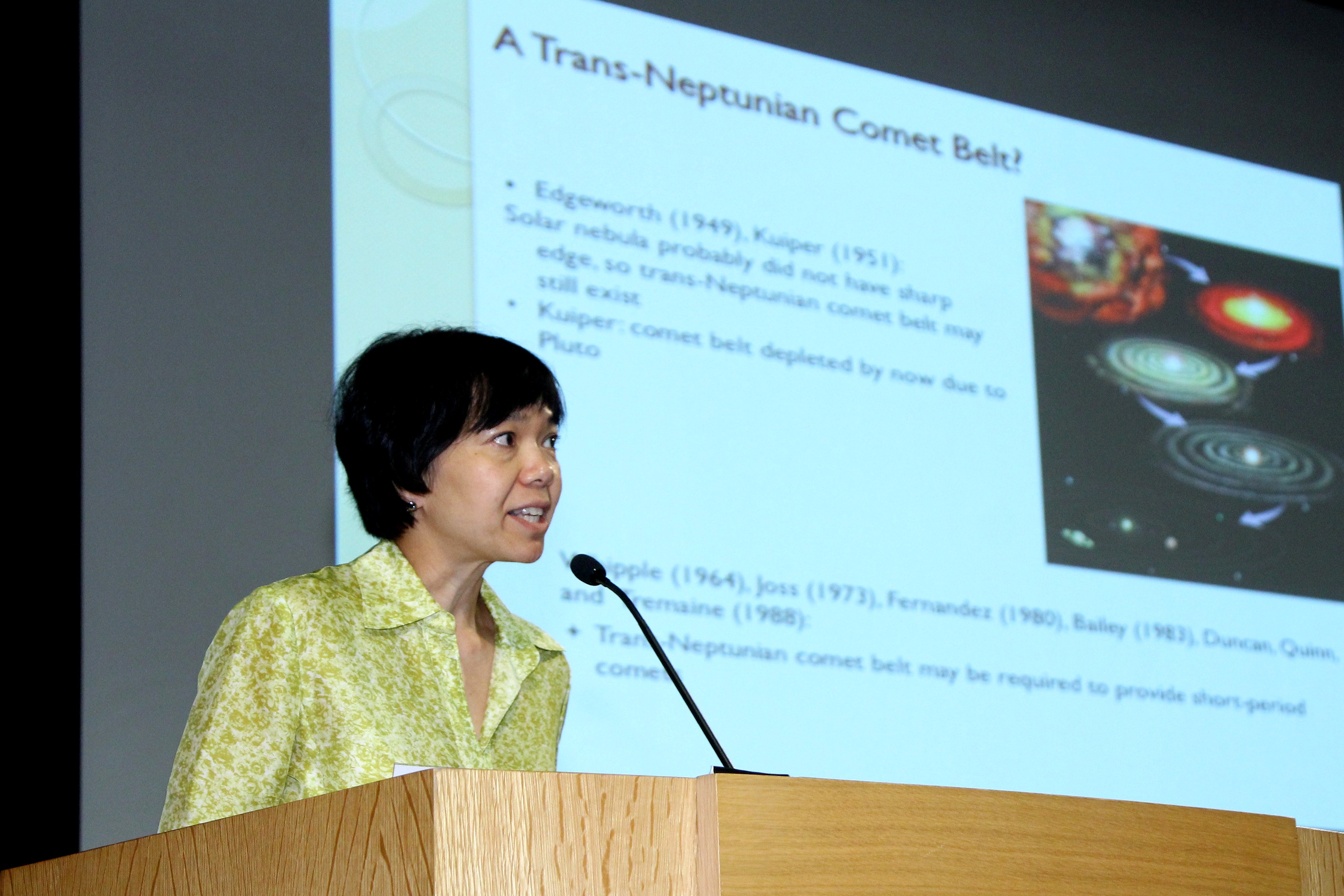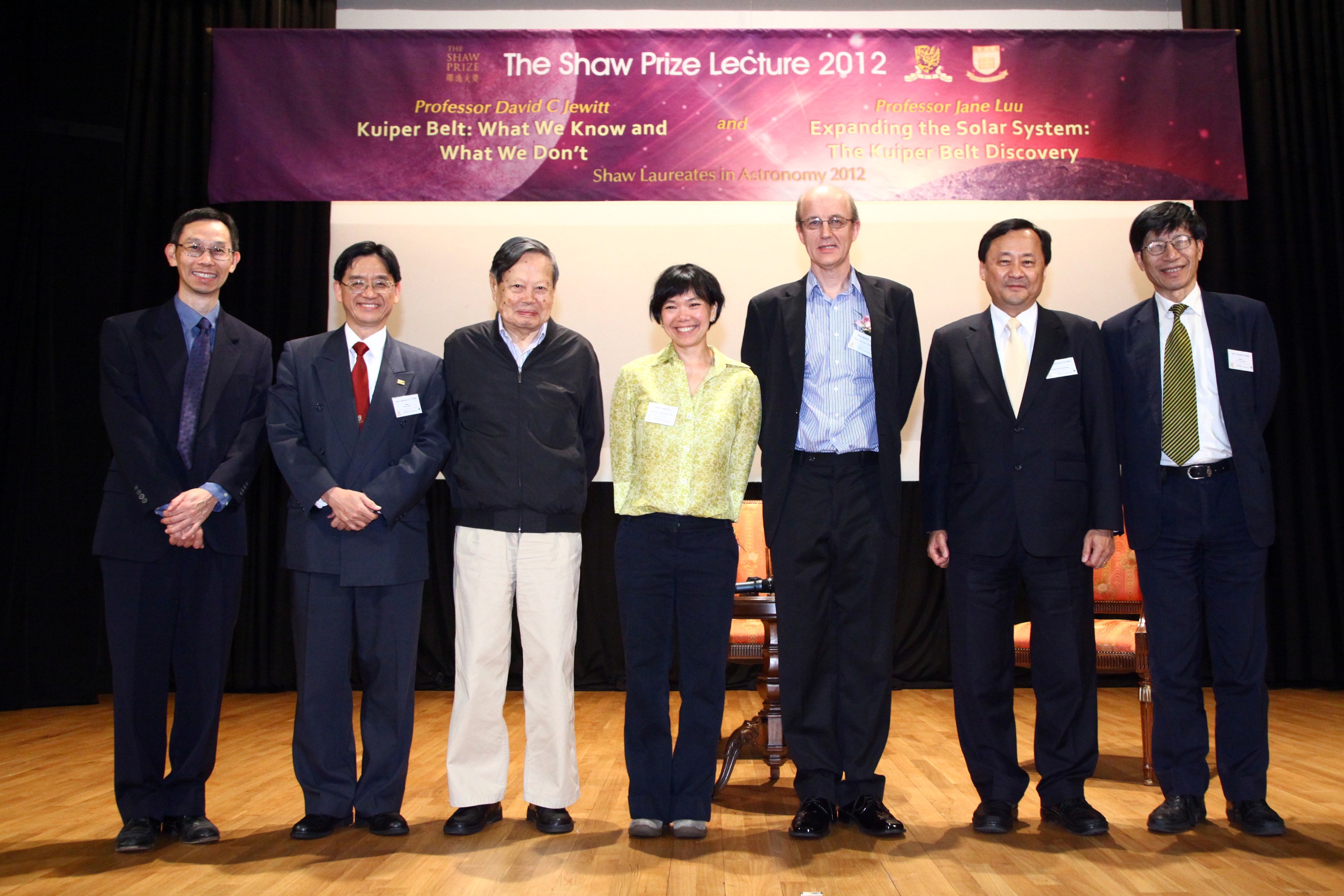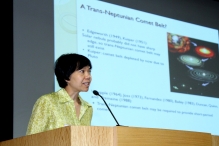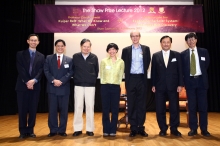CUHK
News Centre
Shaw Laureates in Astronomy 2012 Prof. Jane Luu and Prof. David Jewitt Spoke at CUHK
Prof. Jane Luu and Prof. David C. Jewitt, Shaw Laureates in Astronomy 2012, presented on ‘Expanding the Solar System: The Kuiper Belt Discovery’ and ‘Kuiper Belt: What We Know and What We Don’t’ respectively yesterday (18 September) at Shaw College of The Chinese University of Hong Kong (CUHK). The lecture was a full house, attracting close to 360 staff and students from CUHK and local universities, professionals in the field, as well as secondary school teachers and students.
The Shaw Prize in Astronomy 2012 was awarded to Prof. Jane Luu, technical staff of Lincoln Laboratory of Massachusetts Institute of Technology, USA, and Prof. David C. Jewitt, Professor of Astronomy and the Director of Institute for Planets and Exoplanets, University of California, Los Angeles, U.S.A., in recognition of their discovery and characterization of trans-Neptunian bodies, an archeological treasure dating back to the formation of the solar system and the long-sought source of short period comets. At the time the first trans-Neptunian body was discovered, Prof. Jewitt was Professor of Astronomy at the University of Hawaii and Prof Luu was his graduate student.
Prior to the detection of the first trans-Neptunian object by Prof. Luu and Prof. Jewitt in 1993, little was known about the content of the solar system between the orbit of Neptune at 30 AU (Astronomical Unit) and the Oort cloud, the source of long period comets beyond 10,000 AU. Now we know that the region between 30 and 50 AU is populated by tens of thousands of icy bodies with diameters in excess of 50 kilometers. These grew by the accretion of solids during the early stages of planet formation until some undetermined factors terminated the accretion process. Subsequently, owing to their large separations, these bodies escaped further collisional evolution. Thus they provide the best record of the early stages of planet formation.
About The Shaw Prize
The Shaw Prize is an international award to honour individuals who are currently active in their respective fields and who have achieved distinguished and significant advances, who have made outstanding contributions in culture and the arts, or who in other domains have achieved excellence. The award is dedicated to furthering societal progress, enhancing quality of life, and enriching humanity’s spiritual civilization. Preference will be given to individuals whose significant work was recently achieved.
The Shaw Prize was established under the auspices of Sir Run Run Shaw in November 2002. It consists of three awards: the Prize in Astronomy, the Prize in Life Science and Medicine, and the Prize in Mathematical Sciences. This is the ninth year that the Prize has been awarded since 2004.
(from left) Prof. Chu Ming-chung, Professor of Department of Physics, CUHK; Prof. Andrew C.F. Chan, Head of Shaw College; Prof. Yang Chen-ning, Distinguished Professor-at-Large, CUHK; Prof. Jane Luu and Prof. David C. Jewitt, the Shaw Laureates in Astronomy 2012; Prof. Benjamin Wah, Acting Vice-Chancellor, CUHK; and Prof. Kenneth Young, Master of C.W. Chu College, CUHK.









